
3_Macmillan_-_Advanced_Language_Practise
.pdfA D V A N C ED LANGUAG E PRACTIC E
Other uses of present continuous
Other uses of present simple
Temporary situations
Are you enjoying your stay here?
Repeated actions
My car has broken down, so I am walking to work these days.
Complaints about annoying habits
You are always making snide remarks about my cooking! Other possible adverbs are: constantly, continually, forever
With verbs describing change and development
The weather is getting worse!
More and more people are giving up smoking.
Making declarations
Verbs describing opinions and feelings tend to be state verbs.
I hope you'll come to my party. I bet you don't know the answer!
I hereby declare this hospital open!
Headlines
These are written in a 'telegram' style, and references to the past are usually simplified to present simple.
Ship sinks in midnight collision.
Instructions and itineraries
Instructions and recipes can be written in present simple instead of in imperative forms. This style is more personal.
First you roll out the pastry.
Itineraries are descriptions of travel arrangements.
On day three we visit Stratford-upon-Avon.
Summaries of events
Plots of stories, films etc, and summaries of historical events use present (and present perfect) verb forms.
May 1945: The war in Europe conies to an end.
...At the end of the play both families realise that their hatred caused the deaths of the lovers ...
'Historic present' in narrative and funny stories
In informal speech, it is possible to use what we call the 'historic present' to describe past events, especially to make the narration seem more immediate and dramatic.
... So then the second man asks the first one why he has a banana in his ear and the first one says ...
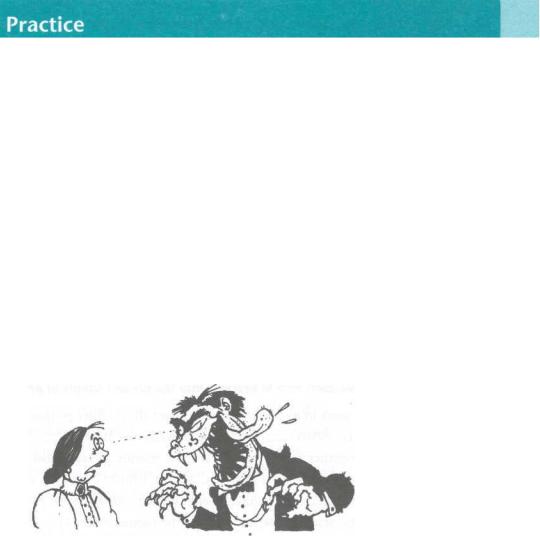
G R A M M A R 1 PRESEN T TIME
1Underline the correct word or phrase in each sentence.
a)I haven't decided yet about whether to buy a new car or a second-hand one. But / think about it/I'm thinking about it.
b)All right, you try to fix the television! But / hope/I'm hoping you know what you're doing.
c)Every year / visit/I'm visiting Britain to improve my English.
d)It's time we turned on the central heating. It gets/It's getting colder every day.
e)Of course, you're Mary, aren't you! / recognise/I am recognising you now.
f)The film of 'War and Peace' is very long. It lasts/It is lasting over four hours.
g)I can see from what you say that your mornings are very busy! But what do you do/are you doing in the afternoons?
h)I'm going to buy a new swimming costume. My old one doesn't fit/isn't fitting any more,
i)That must be the end of the first part of the performance. What happens/is happening now?
j)What's the matter? Why do you look/are you looking at me like that?
2Underline the correct word or phrase in each sentence.
a)I work in this office all this year/all the time.
b)Emerson is currently/for long top of the driver's league.
c)I am not making much money these days/so far this year.
d)The food tastes even worse now/presently. You've put too much salt in.
e)Normally/previously we get in touch with customers by post.
f)Pete was ill but he is getting over his illness soon/now.
g)I'm feeling rather run down lately/at present, doctor,
h)I always stay on duty since/until six o'clock.
i)I'm often/forever picking your hairs out of the bath!
j)Fortunately the baby now/recently sleeps all night.

A D V A N C E D L A N G U A G E PRACTIC E
Put each verb in brackets into the present simple or present continuous.
a) (hear) that you have been promoted. Congratulations!
(hear) that you have been promoted. Congratulations!
b) |
British people |
(drink) more and more wine, |
|
apparently. |
|
c) |
I hope Sarah will be here soon. I |
(depend) on her. |
d) |
Please be quiet, David. You |
(forever/interrupt). |
e) |
Hey, you! What |
(you/think) you're doing? |
f) |
Could you come here please? I |
(want) to talk to |
|
you now. |
|
g) |
Jane is away on holiday so Linda |
(handle) her |
|
work. |
|
h) To be honest, I |
(doubt) whether Jim will be here |
|
|
next week. |
|
i)You've only just started the job, haven't you? How (you/get on)?
j) Pay no attention to Graham. He |
(just/be) sarcastic. |
4 Put each verb in brackets into the present simple or present continuous.
I work in a large office with about thirty other people, most of whom I
(1)  (know) quite well. We (2) (spend) most of the day together, so we have all become friends. In fact, most of my colleagues are so
(know) quite well. We (2) (spend) most of the day together, so we have all become friends. In fact, most of my colleagues are so
interesting, that I (3) |
(think) of writing a book about them! |
||
(4) |
(take) Helen Watson, for example. Helen (5) |
(run) |
|
the accounts department. At the moment she (6) |
(go out) with |
||
Keith Ballantine, one of the sales representatives, and they (7)
(seem) very happy together. But everyone - except Helen apparently -
(8) |
(know) that Keith (9) |
|
(fancy) Susan Porter. But I |
|
(10) |
(happen) to know that Susan (11) |
(dislike) Keith. |
||
'I can't stand people who never (12) |
|
(stop) apologising all the |
||
time!' she told me. 'And besides, I know he (13) |
|
(deceive) poor |
||
Helen. He (14) |
(see) Betty Wills from the overseas department.' |
|||
And plenty of other interesting things (15) |
|
(currently/go on). For |
||
instance, every week we (16) |
(experience) more and more problems |
|||
with theft - personal belongings and even money have been stolen. When you
(17)(realise) that someone in your office is a thief, it
(18) (upset) you at first. But I (19) (also/try) to catch
whoever it is before the police are called in. I'm not going to tell you who I
(20) (suspect). Well, not yet anyway!
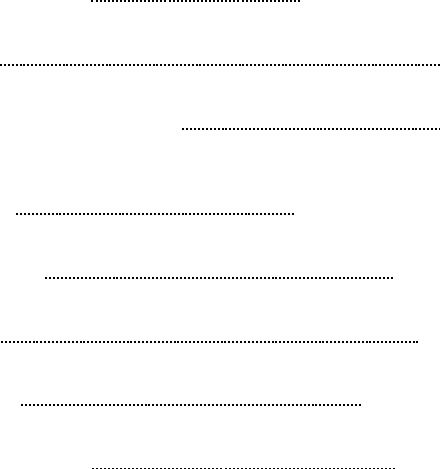
G R A M M A R 1 PRESENT TIME
5 Complete the second sentence so that it has a similar meaning to the first sentence, using one of the words in bold. Do not change the word in bold.
a)Charles and his father are exactly alike in appearance. looks/looking
Charles  his father.
his father.
b)Take all your possessions and walk slowly to the exit.
belongs/belonging
Take everything |
and walk slowly to the exit. |
c) I'm finding it really enjoyable to work here.
enjoy/enjoying
I |
here. |
d)I take work home regularly because of my new responsibility at work. means/meaning
|
My new responsibility at work |
work |
|
home regularly. |
|
e) |
In my cycling group there's George, Tom, Harry and me. |
|
|
consists/consisting |
|
|
My |
George, Tom, Harry and me. |
f) In your opinion, who's going to win the Cup? |
|
|
|
think/thinking |
|
|
Who do |
win the Cup? |
g) |
I'm seeing how wide the door is. |
|
|
measure/measuring |
|
|
I |
the door. |
h) Neil always forgets his wife's birthday. |
|
|
|
remembers/remembering |
|
|
Neil |
his wife's birthday. |
i)Its ability to catch fish is the key to the polar bear's survival. depends/depending
The polar bear's |
to catch fish. |
j) What's on your mind at the moment? |
|
think/thinking |
|
What .. |
..at the moment? |
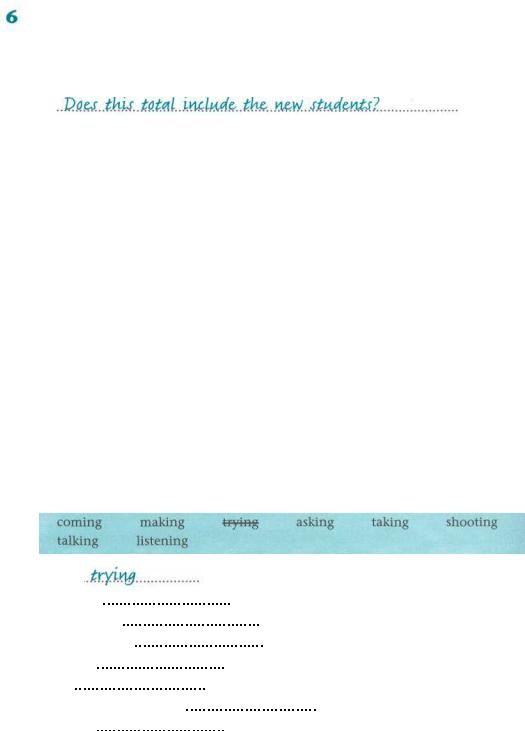
A D V A N C ED LANGUAGE PRACTIC E
Most of these sentences contain an error. Where there is an error, rewrite the
sentence correctly.
a)I'm depending on you, so don't make any mistakes! 
b)Is this total including the new students?
c)Excuse me, but do you wait for somebody?
d)These potatoes are tasting a bit funny.
e)How are you feeling today?
f)I look forward to hearing from you.
g)I have a feeling that something goes wrong.
h)What's that you're eating?
i)Are you hearing anything from Wendy these days?
j)I think you're being rather mean about this.
7 Complete the expressions using the words from the box.
a) |
I'm |
to concentrate. |
b) Are you |
off now, or can we talk? |
|
c) |
Go on, I'm |
|
d) |
I think we're |
at cross purposes. |
e) |
You're |
for trouble. |
f) |
It's |
along nicely. |
g) |
You don't seem to be |
much interest. |
h) You're |
a fuss about nothing. |
|
Which expression means one of the following? 1 Are you in a hurry to leave?
2We're talking about different things without realising it.
3If you say or do this you will get into difficulties.

Basic contrasts: will, going to, present continuous
Future continuous
Future perfect
Explanations
Will is normally known as the predictive future, and describes known facts, or what we supposes true.
I'll be late home this evening.
The company will make a profit next year.
This can also take the form of an assumption.
That'll be Jim at the door. (This means that I suppose it is Jim.)
Will is also used to express an immediate decision. /'// take this one.
Be going to describes intentions or plans. At the moment of speaking the plans have already been made.
I'm going to wait here until Carol gets back.
Going to is also used to describe an event whose cause is present or evident.
Look at that tree! It's going to fall.
Compare the following with the examples in the first bullet point:
I'm going to be late this evening. I've got lots of paperwork to finish off.
The figures are good. I can see the company is going to make a profit this year.
Decisions expressed with going to refer to a more distant point in the future.
Present continuous describes fixed arrangements, especially social and travel arrangements. A time reference is usually included. Note the strong similarity to the going to future. / am having a party next week and / am going to have a party next week are communicating the same message.
This describes an event which will be happening at a future point.
Come round in the morning. I'll be painting in the kitchen.
It can also describe events which are going to happen anyway, rather than events which we choose to make happen.
/ won't bother to fix a time to see you, because I'll be calling into the office anyway several times next week.
In some contexts future continuous also sounds more polite than will.
Will you be going to the shops later? Ifyou go, could you get me some milk?
It can also be used to refer to fixed arrangements and plans.
The band will be performing live in Paris this summer.
This has both simple and continuous forms, and refers to time which we look back at from a future point.
In two year's time I'll have finished the book.
By the end of the month, I'll have been working for this firm for a year.
A D V A N C ED LANGUAG E PRACTIC E
Other ways of referring to the future
Other future references
It can also be used to express an assumption on the part of the speaker.
You won't have heard the news, of course.
(This means that I assume you have not heard the news.)
Is/are to be
This is used to describe formal arrangements.
All students are to assemble in the hall at 9.00.
See also Grammar 11 and 12 for uses expressing obligation.
Be about to, be on the point of, be due to, just/just about to
Be about to and be on the point of both refer to the next moment. / think the play is about to start now.
Mary is on the point of resigning. Be due to refers to scheduled times.
The play is due to start in five minutes. Ann's flight is due at 6.20.
Just can be used to describe something on the point of happening.
Hurry up! The train is just leaving/just about to leave.
Present simple and present perfect
Present simple is used to refer to future time in future time clauses.
When we get there, we'll have dinner.
Present perfect can also be used instead of present simple when the completion of the event is emphasised.
When we've had a rest, we'll go out.
Present simple is also used to describe fixed events which are not simply the wishes of the speaker.
Tom retires in three years.
Similarly, calendar references use the present simple.
Christmas is on a Tuesday next year.
Hope
This can be followed by either present or future verb forms. / hope it doesn't rain. I hope it won't rain.
Other verbs followed by will.
Most verbs of thinking can be followed by will if there is future reference. These include: think, believe, expect, doubt.
I expect the train will be late. I doubt whether United will win.
Shall
The use of shall for first person in future reference is generally considered to be restricted to British English and possibly declining in use. See Grammar 11 and 12 for other uses of shall and will. For some speakers, shall is used in formal speech and in written language.

G R A M M A R 2 FUTURE TIME
This section also includes time phrases used in expressing future time.
Put each verb in brackets into a suitable verb form.
a)In twenty-four hours' time  (I/relax) on my yacht.
(I/relax) on my yacht.
b) There's someone at the door.' That |
(be) the |
||
|
postman.' |
|
|
c) |
By the time you get back Harry |
(leave). |
|
d) |
It's only a short trip. I |
(be) back in an hour. |
|
e) |
What |
(you/do) this Saturday evening? Would |
|
|
you like to go out? |
|
|
f) By the end of the week we |
(decide) what to do. |
||
g) It |
(not/be) long before Doctor Smith is here. |
||
h) |
We'll go to the park when you |
(finish) your tea. |
|
i) |
It's very hot in here. I think I |
(faint). |
|
j) |
What |
(you/give) Ann for her birthday? Have |
|
|
you |
decided yet? |
|
2In most lines of this text there is an extra word. Write the extra word, or put a tick if the line is correct.
In August Gordon will then have been at his company for 25years, |
1 |
and he's getting for a bonus of three weeks paid holiday. Sowe've |
2 |
decided to hire a car and drive around Eastern Europe. We'll be |
3 |
leaving towards the end of August, and our aim there is to visit as |
4 |
many countries as we can. We're flying out to Budapest - soon we're |
5 |
due to catch a plane on the 28th day - and then we'll be stopping over |
6 |
at a friend's house, before starting our grand tour. We'll most probably |
7 |
spend the best part of a week in Hungary. When we've just finished |
8 |
there, we'll probably be go to Romania, but beyond that we haven't |
9 |
planned too much arrangements. We will know a bit more by the end |
10 |
of this week, when we're getting a whole load of brochures from the |
11 |
tourist board. We'd like to get to as far as Russia, but realistically I |
12 |
doubt whether we'll have time. I hope it won't be too expensive - |
13 |
from till now on we'll really have to tighten our belts! I can't wait! |
14 |
In just over two months' of time we'll be having the time of our lives! |
15 |
9
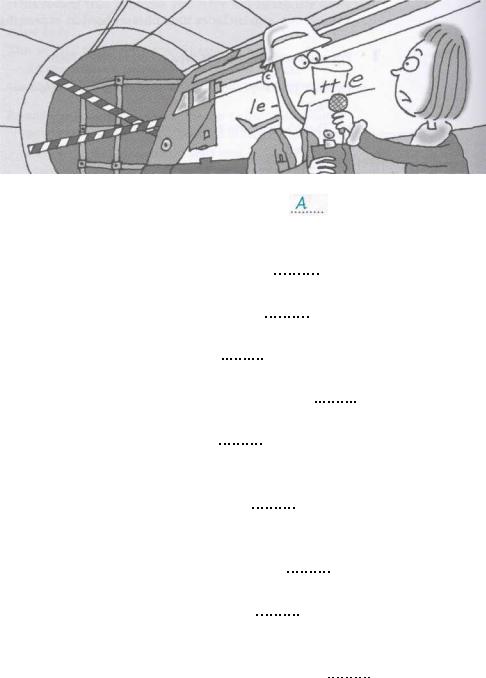
A D V A N C ED LANGUAG E PRACTIC E
3 Choose the most appropriate continuation for each sentence.
a) |
According to the latest forecast, the tunnel |
|
|
||||
|
A will be finished next year. |
B will have been finished next year. |
|||||
|
C is finishing next year. |
|
|
|
|
||
b) |
Paula's flight is bound to be late although |
|
|
||||
|
A it arrives at 6.00. |
B it's due at 6.00. |
C it's arriving at six. |
||||
c) |
It's no use phoning Bob at the office, he |
|
|
||||
|
A will be leaving. |
B is leaving. |
C will have left. |
|
|||
d) Everyone says that this year City |
|
|
|
||||
|
A are going to win the Cup. |
B are winning the Cup. |
C win the Cup. |
||||
e) |
I don't feel like visiting my relatives this year so |
|
|||||
|
A I won't go. |
B I'm not going. |
C I don't go. |
|
|||
f)You can borrow this calculator, I
A am not going to need it. B won't have been needing it. C am not needing it.
g)I'm sorry dinner isn't ready yet, but it
|
A is going to be ready in a minute. B will have been ready in a minute. |
|
C will be ready in a minute, |
h) |
Can you send me the results as soon as you |
|
A hear anything? B are hearing anything? C will have heard anything? |
i) |
You can try asking Martin for help but |
|
A it won't do you any good. B it's not doing you any good. |
|
C it won't be doing you any good, |
j)Don't worry about the mistake you made, nobody A is noticing. B will notice. C will be noticing.
10
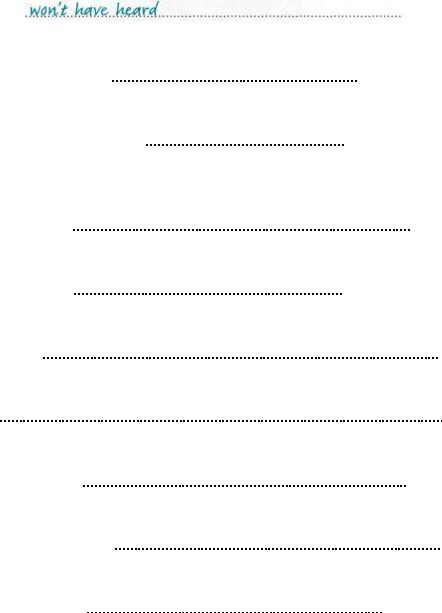
G R A M M A R 2 FUTURE TIME
4Complete the second sentence so that it has a similar meaning to the first sentence, using the word given. Do not change the word given.
a) |
I don't suppose you have heard the news. |
|
|
won't |
|
|
You |
the news. |
b) |
The Prime Minister expects an easy victory for his party in the election. |
|
|
believes |
|
|
The Prime Minister |
the election easily. |
c) |
I've been in this company for almost three years. |
|
|
will |
|
|
By the end of the month |
in this company for |
|
three years. |
|
d)This book will take me two years to write. have
In two years' |
this book. |
e) Scientists are on the point of making a vital breakthrough. |
|
about |
|
Scientists are |
a vital breakthrough. |
f)Maria is pregnant again. have
Maria is |
baby. |
g) I'll be home late. |
|
until |
|
I |
late. |
h)No one knows what the result of the match is going to be. who
No one knows |
the match. |
i) Don't worry; David won't be late. |
|
here |
|
Don't worry; David |
time. |
j) Mary and Alan's wedding is next weekend. |
|
getting |
|
Mary and Alan |
next weekend. |
11
